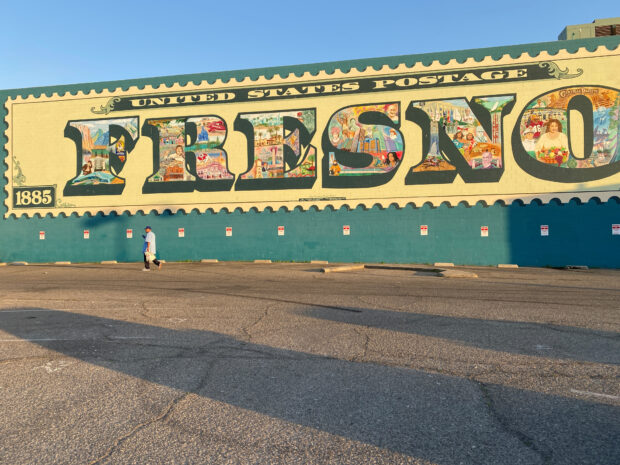Fresno in California becomes only second US city to ban caste discrimination

FILE PHOTO: A pedestrian walks by a mural depicting the history, culture and economy of the California Central Valley city of Fresno, California on February 24, 2020. REUTERS/ Ann Saphir/File Photo
Fresno, California, became only the second U.S. city to ban caste discrimination after a unanimous city council vote that added caste and indigeneity as two new protected categories into its municipal code.
The take
A movement against caste discrimination has picked up some momentum in recent months in North America. Earlier this year, Seattle became the first U.S. city to outlaw caste discrimination after a city council vote and Toronto’s school board became the first in Canada to recognize that caste discrimination existed in the city’s schools.
What’s next
American activists opposing caste discrimination aim to fight against the practise throughout the United States.
A bill in California aimed at banning caste discrimination in the entire state was passed by the state Assembly in late August and by the state Senate in early September with a near unanimous vote. It is now at the desk of Governor Gavin Newsom.
If signed into law, it would make California the first U.S. state to ban caste discrimination.
Article continues after this advertisementContext
The caste system is among the world’s oldest forms of rigid social stratification. It dates back thousands of years and allows many privileges to upper castes but represses lower castes. The Dalit community is on the lowest rung of the Hindu caste system; members have been treated as “untouchables.”
Article continues after this advertisementIndia outlawed caste discrimination over 70 years ago, yet several studies in recent years show that bias persists. One study found people from lower castes were underrepresented in higher-paying jobs.
Dalits still face widespread abuse across India, where their attempts at upward social mobility have at times been violently put down.
Debate over the caste system is contentious and intertwined with religion.
Activists opposing caste discrimination say it is no different from other forms of discrimination like racism and hence should be outlawed.
Opponents of such a step in the U.S. say that since U.S. laws already ban ancestry discrimination, an action of this type becomes meaningless and only serves to stigmatize the entire community – mostly Hindus and South Asians – with a broad brush.